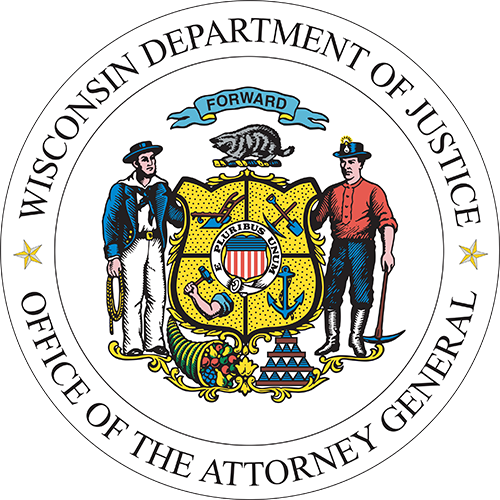AG Kaul & AGs Coalition Support Schools’ Ability to Protect Students from Bullying
Coalition Urges Supreme Court to Permit Schools to Address Harmful Off-Campus Speech that Substantially Disrupts School or Interferes with Students’ Learning
MADISON, Wis. – Attorney General Josh Kaul and a coalition of 23 other attorneys general filed a friend-of-the-court brief urging the U.S. Supreme Court to preserve schools’ ability to address cyberbullying and other forms of off-campus bullying that substantially affects students’ education. The coalition filed the brief in Mahanoy Area School District v. B.L., a case concerning the ability of schools to hold students accountable for off-campus speech, and does not support either party. Because of public schools’ obligation to protect students and promote learning, the Supreme Court has long given them more leeway to regulate student speech under the First Amendment than states have regarding adults’ speech. But the lower court in this case ruled that schools may never regulate students’ off-campus speech. In their brief, the attorneys general urge the Supreme Court to reject this rule, arguing that it would undermine state anti-bullying laws and prevent schools from addressing in-person and online bullying that originates off-campus. Instead, the coalition encourages the Supreme Court to uphold an existing legal standard, which empowers schools to regulate speech that substantially disrupts school or interferes with other students’ ability to learn.
“Students should be able to learn in an environment free from bullying, and schools must be able to take action to address bullying that affects students in the classroom, even when it happens outside of school,” said Attorney General Kaul. “The AGs who have joined this amicus brief are urging the Supreme Court not to undermine schools’ ability to address cyberbullying and other forms of out-of-school bullying that interfere with learning.”
In Tinker v. Des Moines Independent Community School District, a landmark 1969 decision, the Supreme Court affirmed that students have First Amendment rights in public school settings but also recognized that school officials may regulate student speech that would “materially and substantially disrupt the work and discipline of the school” or interfere with the rights of other students. Every federal appellate court in the country, except the Third Circuit in the case now before the Supreme Court, has applied the Tinker standard to student speech that causes substantial disruption or harm at school, regardless of where the speech originates.
Bullying is a harmful and disruptive form of student behavior—often involving speech—that public schools across the country prohibit. Bullying involves targeted intimidation or humiliation, typically through repeated, aggressive behavior perpetrated by students who are perceived to be stronger or more socially prominent than the victims. Bullying can take many forms, including physical violence, threats, offensive insults, or mocking. It can also take the form of indirect aggression, including spreading false or harmful rumors or distributing embarrassing images of targeted student. All 50 States have passed school anti-bullying laws, including laws requiring schools to establish anti-bullying policies and implement procedures to investigate and respond to bullying. More than two-thirds of these laws cover some bullying that occurs or originates off campus, and most state anti-bullying laws incorporate Tinker’s standard of disruption to the school environment to determine when schools have authority to act.
In their amicus brief filed in Mahanoy Area School District v. B.L., the attorneys general do not take a position on the underlying facts of the case. Instead, they urge the Court to treat students’ off-campus speech like any other students’ speech, allowing schools to regulate it when it has substantial effects on the school or other students’ learning, because:
- Schools have a duty to provide a high-quality education to all students: Millions of school children experience bullying each year, and it oftentimes harms their ability to learn. In addition to making students feel unsafe at school, bullying has been shown to lower both short- and long-term academic performance of victims and perpetrators.
- The line between on- and off-campus has been blurred by technology: Technology, electronic communications, and social media allow students to remain connected to their school communities even outside of school hours and when they are not physically present at school. During the COVID-19 pandemic, virtual learning has further blurred the line between which student speech should be considered on-campus and which should be considered off-campus.
- Cyberbullying is a growing problem: Technology has created new opportunities for bullying to occur and a growing number of school-aged children report being bullied by other students online, on their cell phones, or on other electronic media. One recent survey found that 59% of teenagers in the United States have personally experienced cyberbullying at some point in their lives. In a 2019 nationally representative survey by the Centers for Disease Control and Prevention, 15.7% of high school students reported being bullied by another student through texting, Instagram, Facebook, or other social media during the past year.
- Bullying can become disruptive at school regardless of where it originates: Regardless of when and where it occurs, bullying can create a school climate in which student victims feel unsafe and unable to engage in learning. For example, children who are cyberbullied are more likely to report missing school because they feel unsafe at school or when traveling to or from school.
- Students will lose critical protections from cyberbullying: The laws of 35 States and the District of Columbia require or permit schools to regulate cyberbullying that occurs off campus, on non-school devices, and on non-school online platforms. Students would lose these important protections if the Court limits schools’ power to regulate off-campus speech.
Joining Attorney General Kaul in submitting the amicus brief were the attorneys general of California, Colorado, Delaware, the District of Columbia, Hawaii, Illinois, Iowa, Maine, Maryland, Massachusetts, Michigan, Minnesota, Nevada, New Hampshire, New Jersey, New Mexico, New York, North Carolina, Oregon, Pennsylvania, Rhode Island, Vermont, and Washington.
